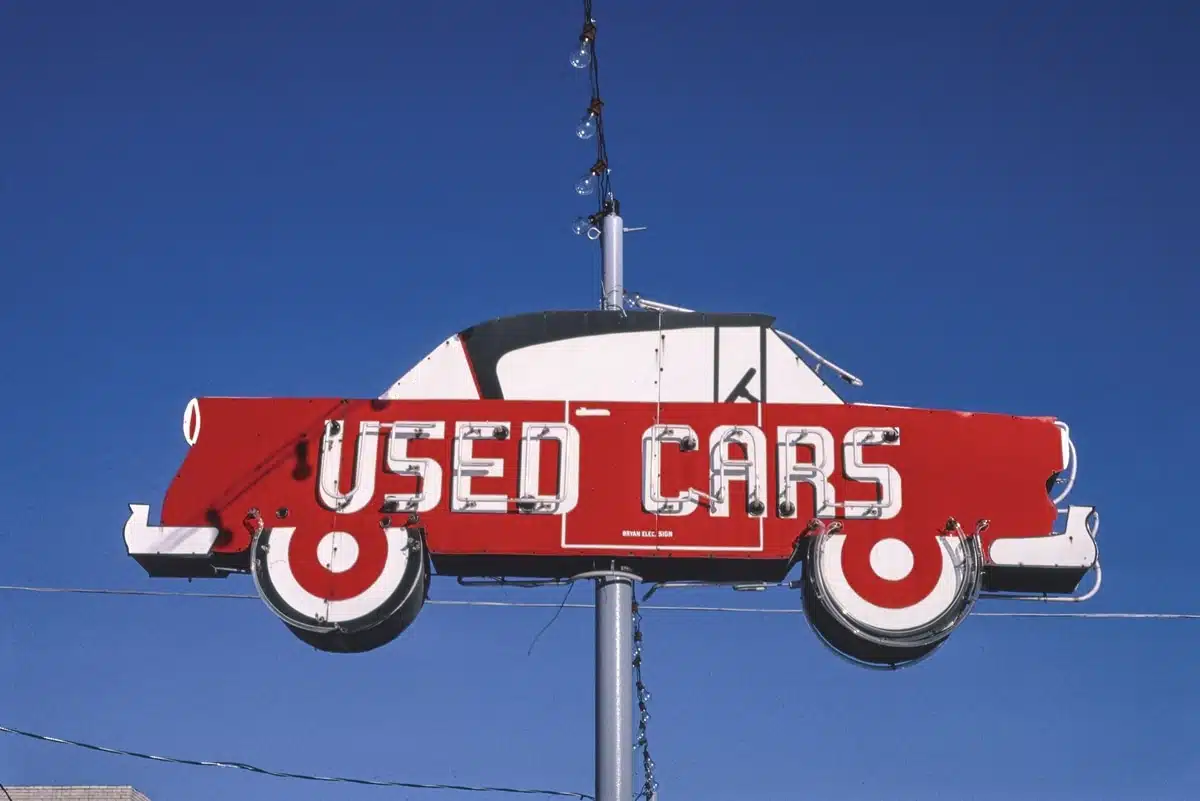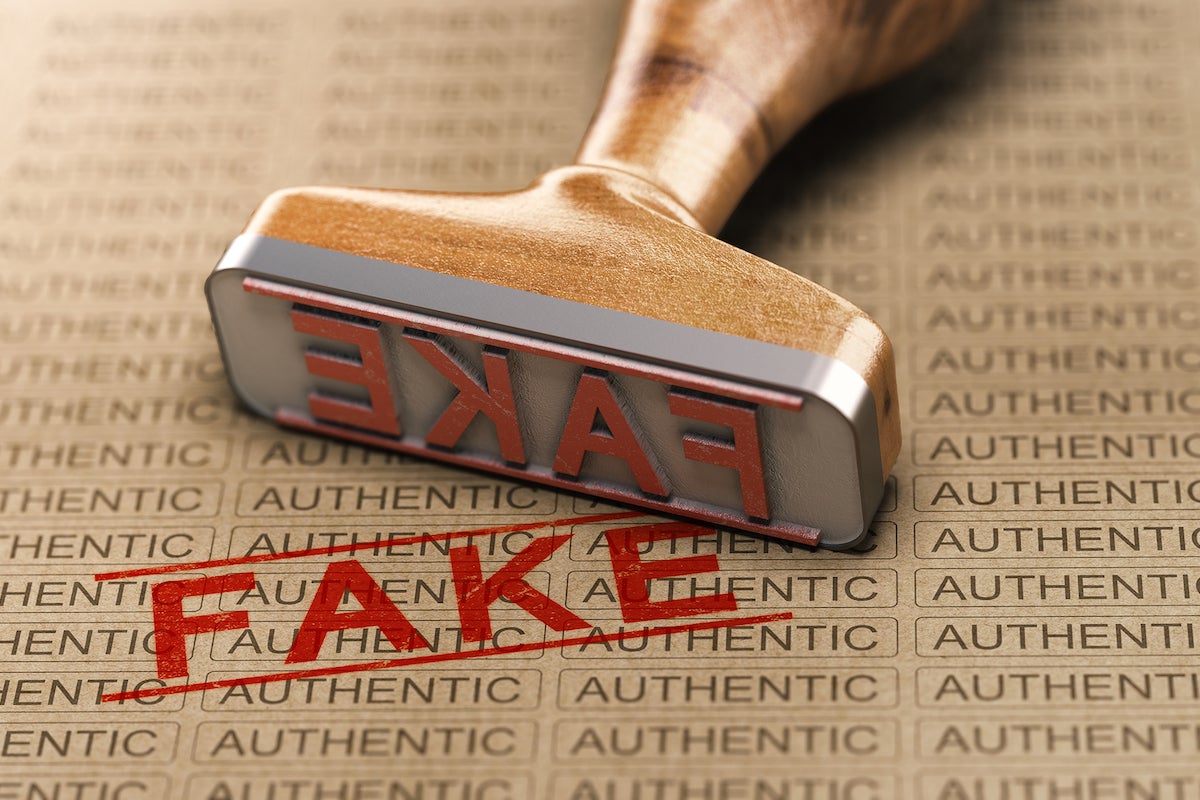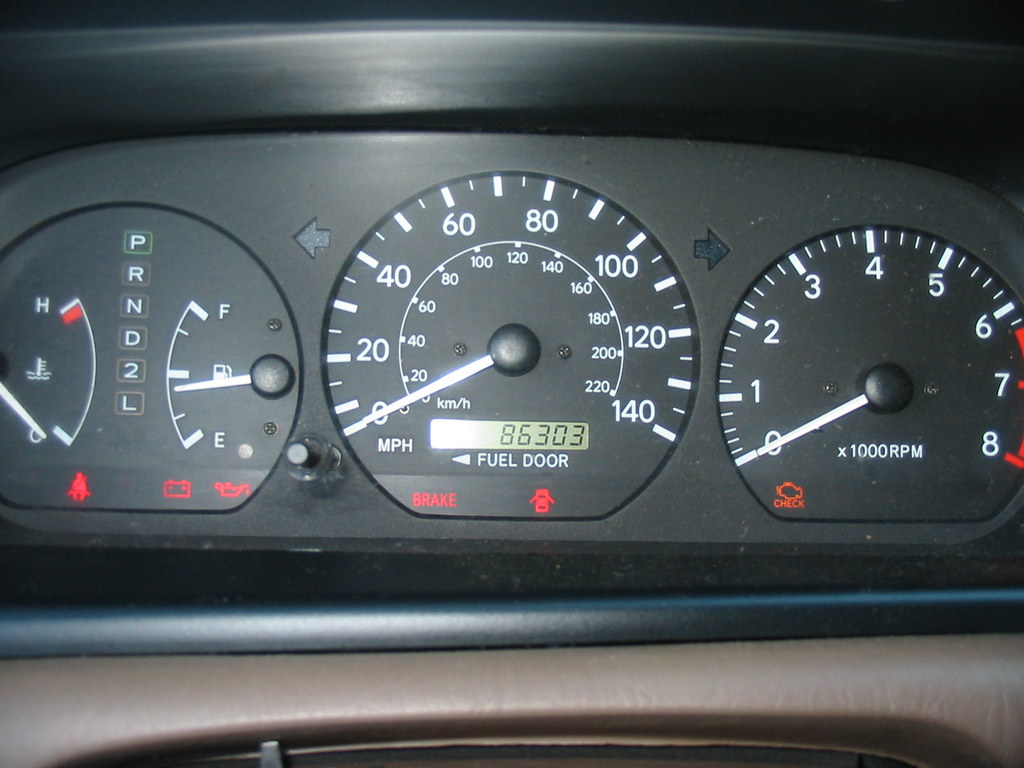
Buying a used car can offer significant savings and value compared to purchasing a brand-new vehicle. In today’s digital age, online platforms have seemingly made the process of finding and acquiring a used car easier than ever before. However, this convenience comes with a significant caveat: the online marketplace is unfortunately fertile ground for various forms of fraud, preying on unsuspecting buyers.
The allure of a great deal or a rare find can often overshadow critical warning signs, leading consumers down a path of costly mistakes, legal entanglements, and immense frustration. From misrepresented vehicle conditions to outright financial scams, the tactics employed by fraudulent sellers are constantly evolving, becoming more sophisticated and harder to detect with an untrained eye. Protecting your investment and peace of mind requires a vigilant approach, armed with comprehensive knowledge and practical strategies.
This in-depth guide is meticulously designed to equip you with the essential tools and insights needed to navigate the treacherous waters of the online used car market. Drawing on thoroughly researched information and expert analysis, we will meticulously break down the most common red flags and deceptive practices. Our aim is to empower you with clear, actionable steps, enabling you to identify and confidently sidestep potential scams, ensuring that your next used car purchase is both safe and satisfactory.

1. **Refusal to Provide Title or History Report**
Access to a vehicle’s title and a comprehensive history report is a fundamental right for any used car buyer. This documentation details critical information such as ownership changes, accident history, and lien status, serving as the car’s legal identity and autobiography. When a dealer or seller exhibits reluctance or outright refusal to furnish these documents, it should immediately trigger a serious red flag in your purchasing process.
Scammers often employ delaying tactics, claiming the title is “being processed” or that they “will get that to you after the paperwork is finalized.” This is a classic maneuver to bypass legal obligations, particularly in states like California, where dealers are legally mandated to provide the title and all known history before a sale is concluded. Such resistance frequently indicates that the car has something significant to conceal, often a branded title—such as those marked “salvage,” “lemon law buyback,” or “flood-damaged”—which drastically impacts a vehicle’s value, safety, and insurability.
To protect yourself, it is imperative to always insist on reviewing both the vehicle title and a history report from reputable services like Carfax, NMVTIS, or AutoCheck *before* signing any documents or making any payments. A Reddit complaint highlights this deception, with a buyer stating, “Dealership told me car had a clean title but once I got paperwork back from the DMV, it was a salvaged title.” A legitimate seller will have these readily available and will be transparent about the car’s past; any deviation from this transparency should prompt you to walk away from the deal.
Read more about: Beyond the Bid: Unveiling the 14 Hidden Costs of Importing a 25-Year-Old JDM Classic to the US

2. **Pressure Tactics / Rushed Signing**
High-pressure sales tactics are a common and manipulative strategy used by dishonest sellers to force buyers into making hasty decisions. These tactics often involve creating a false sense of urgency, with statements like, “This deal won’t last” or “Another buyer is waiting, so you need to act now.” The goal is to overwhelm you, making it difficult to properly scrutinize documents or consider the purchase thoroughly.
It is crucial to remember that legitimate deals do not evaporate overnight. California law, for instance, requires that all material disclosures—including details about branded titles, previous accidents, and mechanical issues—be provided to the buyer in writing *before* the sale. Being rushed prevents you from adequately reading and understanding these vital disclosures, which could hide significant problems with the vehicle.
A consumer complaint on Reddit highlights this red flag: “Car fax report claimed it had no accidents and so did the dealership. A few days later noticed there appeared to a panel slightly misplaced. We took it to an auto body who said it has 100% been in an accident, the bumper had been entirely replaced, poorly done at that.” This scenario clearly illustrates how verbal assurances, when not backed by written documentation that the buyer had time to review, can lead to serious post-purchase discoveries.
Never succumb to pressure. A reputable seller will provide ample time for you to review all contracts and disclosures, ask questions, and even seek independent advice if needed. If you feel any form of coercion or rush, take a step back. The integrity of the deal should not depend on how quickly you can sign on the dotted line.
Read more about: Navigating Retirement: Understanding the ‘Worst’ Financial Pitfalls and Products Targeting Seniors Over 70

3. **Unrealistically Low Price**
While everyone appreciates a good bargain, a price that appears “too good to be true” almost invariably is. This significant red flag often signals that the seller is attempting to offload a vehicle with severe, undisclosed problems that would significantly diminish its actual market value. Fraudulent dealers leverage the buyer’s desire for a deal to push problematic cars, often without revealing their true condition.
This tactic is frequently associated with serious issues such as undisclosed flood damage or a washed title. For example, a consumer identified as “West” purchased a car online due to its below-average price. Later, they started to notice damage such as rust under the seats, warping, and odor. Taking the car to a local mechanic, he learned it had been declared a total loss due to undisclosed flood damage. The dealer had cleaned it up and rebranded it.
Flood-damaged vehicles pose a multitude of ongoing problems that extend far beyond cosmetic repairs. They can suffer from persistent electrical malfunctions, the insidious growth of mold, and hidden corrosion that compromises the structural integrity and safety of the vehicle. Such issues can be expensive to repair and may render the car unsafe or unreliable in the long term. To safeguard yourself, always compare the asking price against established valuation guides like Kelley Blue Book and Edmunds. If a car is priced significantly below these benchmarks, it is critical to thoroughly investigate the underlying reasons.
Read more about: 15 Unbeatable Secrets Top Real Estate Agents Swear By to Sell Homes Faster and for More

4. **Paperwork Discrepancies**
A glaring red flag that demands immediate attention is any inconsistency between what a dealer verbally promises and what is actually documented in the sales contract or warranty papers. You might be assured that a car comes with a comprehensive warranty, but the contract says “as is.” Or they may say it has a clean history, but the VIN search shows multiple past accidents.
These bait-and-switch tactics are not just dishonest—they’re illegal. California’s Consumer Legal Remedies Act and The Vehicle Code specifically prohibit misrepresentation in advertising and sales. The discrepancies aim to legally bind you to terms that contradict your understanding and what was initially agreed upon, leaving you vulnerable to significant financial burdens.
A California buyer’s Reddit complaint titled “Texas dealer told us warranty would cover any issues” illustrates this problem. The buyer was verbally assured by the dealer that the vehicle came with a 100-day warranty covering any engine issues. However, when the car’s engine failed a few months later, the warranty provider denied coverage. Further investigation revealed the dealer submitted warranty documents that were different than the ones provided to the buyer.
Prior to finalizing any purchase, it is absolutely essential to meticulously review every single document. Ensure that all verbal agreements, warranties, and historical claims are precisely reflected in the written contract. If any part of the paperwork contradicts what you were told, do not sign it. Insist on corrections and clarity before proceeding, because once signed, the written contract typically supersedes any prior verbal assurances.
Read more about: 12 Dealership Tactics You Must Master Before Your Next Car Negotiation

5. **Signs of Hidden Damage / Unreported Repairs**
Fraudulent dealers frequently engage in superficial cosmetic enhancements to mask serious underlying issues with a vehicle. These cars may appear visually appealing on the surface, but beneath the façade lie deep-seated problems that can compromise safety and lead to extensive, costly repairs down the line. It’s a classic tactic to make a damaged vehicle seem pristine and to avoid legally required disclosures.
Vigilance is key to detecting these concealed damages. Look closely for mismatched paint (indicating panel replacements), which often means the car has been repainted after an accident, potentially poorly. Non-functioning airbags are a severe safety hazard that can be hidden by unscrupulous sellers. Furthermore, be wary if the “check engine” light appears mysteriously disabled or if you notice new parts exclusively in one specific area of the vehicle, suggesting a localized, hurried repair without addressing broader systemic issues.
The most effective way to uncover these hidden problems is to insist on an independent mechanic’s inspection *before* you finalize the purchase. This is a crucial step, even if the dealer claims the car has been “certified” or “inspected” by their own team. An unbiased, third-party professional can identify undisclosed issues, providing you with an objective assessment of the vehicle’s true condition and potentially saving you from a significant financial blunder.
Read more about: Drivers, Beware: 6 High-Risk Used Cars You Must Think Twice About Before Buying in 2025

6. **Unlicensed Dealerships / Curbstoning**
Not all individuals or entities selling cars are operating legally. A significant warning sign is when you encounter what is known as “curbstoning”—the illegal practice of unlicensed dealers posing as private sellers to circumvent state regulations. These sellers often operate without the necessary licenses from departments like the California DMV, enabling them to bypass crucial inspections, misrepresent vehicle mileage, and avoid accountability when problems inevitably arise.
Curbstoners strategically lure prospective buyers to unconventional, non-business locations such as public parking lots or the curbside of a road, hence the name. Their primary objective is to offload salvaged or severely damaged cars that would not pass legitimate dealer inspections or be permitted for sale on the open market by reputable businesses. These vehicles are often cosmetically enhanced to hide dangerous flaws like missing airbags or unsafe frame welding, putting buyers at serious risk.
These illegal sellers commonly advertise on social media platforms, online marketplaces, or even through handwritten “for sale” signs placed on parked cars—and they usually try to offload multiple cars at the same time. A report from the City of San Diego specifically warns consumers about the widespread risk posed by curbstoners operating across California. They also typically demand cash payments, aiming to eliminate any paper trail that could be used to trace their fraudulent activities.
To protect yourself, always verify that the seller is a legitimately licensed dealer. Utilize official resources like your state’s DMV occupational license lookup before engaging in any business. If a seller is reluctant to meet at a verifiable business address, avoids providing ownership documents, asks “which car are you calling about?” when inquired, or insists on cash, these are strong indications you are dealing with a curbstoner.
Read more about: Consumer Alert: 13 Essential Safeguards Against the Hidden Dangers of Buying a Car Sight Unseen Online

7. **Fake Online Listings**
The ease of browsing countless vehicle options online has unfortunately opened the door to a pervasive scam: fake vehicle advertisements. Scammers exploit online platforms by posting ads for cars that either do not exist or are vastly misrepresented. The primary goal is to extract money or personal information from unsuspecting buyers, leading to wasted time and significant financial loss rather than a legitimate purchase.
Several tell-tale signs can help you identify a fraudulent online listing. The most prominent is an “unrealistically low price.” If a car is listed for thousands below its market value, as determined by reputable guides, it is almost certainly a scam. Another common indicator is the quality of the visual content: scammers frequently use only one or two blurry, low-resolution photos, or even stock images, avoiding detailed, high-quality visuals that would reveal the car’s true condition.
Vague descriptions riddled with typos, grammatical errors, and mismatched details are also strong red flags. Legitimate sellers typically provide comprehensive, accurate descriptions of their vehicles. Furthermore, if the seller refuses to share critical information like the Vehicle Identification Number (VIN) or detailed service history, it’s a clear sign to disengage. Scammers also often employ manipulative urgency, pressuring buyers to make immediate decisions by claiming, for instance, that “other buyers are lining up.” To avoid falling victim, always insist on seeing the car in person, ideally having a pre-purchase inspection conducted by an independent mechanic. Never send deposits or full payments before thoroughly verifying the vehicle and the seller’s legitimacy. Your diligence in checking these elements is your best defense against fake online listings.
Navigating the complexities of the online used car market requires more than just an eye for initial red flags; it demands an understanding of the more sophisticated schemes employed by fraudsters. These advanced scams often involve elaborate deceptions around payment, vehicle history, and even the car’s true identity. Arming yourself with knowledge about these tactics is crucial for protecting your financial interests and ensuring a legitimate purchase. The following section delves into these intricate frauds, providing you with the detailed insights needed to identify and circumvent them.
Read more about: 12 Dealership Tactics You Must Master Before Your Next Car Negotiation

8. **Gift Card Scam**
One common hallmark of many scams targeting used car buyers is a request for gift cards as payment. When victims contact the imposter seller, often via a fake toll-free number, they are instructed to purchase gift cards for the agreed-upon sale price and then provide the prepaid gift card codes. This method of payment is highly suspicious because gift cards are virtually untraceable, which is precisely why scammers prefer them over traditional, verifiable payment methods.
Legitimate sellers prioritize secure and traceable transactions, understanding that such methods offer protection to both parties. No reputable car seller would ever prefer untraceable gift cards over more secure options like bank transfers or certified checks. Such a request immediately signals a fraudulent intent, aiming to disappear with your money without leaving any recoverable trace.
To safeguard your funds, it is imperative to never pay for a vehicle using alternative currencies that cannot be traced. The Federal Trade Commission explicitly states, “If anyone tells you to pay that way, it’s a scam. Every time.” This caution applies equally to gift cards and digital currencies like Bitcoin. Utilizing secure platforms such as bank or credit card providers offers critical fraud protection and security services. Deviating from these established platforms opens you to the significant risk of losing your entire payment to scammers.
Read more about: Beyond the Jackpot: Unpacking the Worst Financial Decisions Lottery Winners Often Regrettably Make

9. **Purchase Protection Plan Scam**
Certain legitimate online platforms, such as eBay Motors, offer a vehicle purchase protection plan for some vehicles sold through their service. These programs are designed to protect buyers from fraud and ensure sellers are held accountable for their listings. However, some scammers cunningly attempt to exploit this trust by faking a relationship with these reputable companies, creating imposter phone numbers, email addresses, and even deceptive websites to mislead potential buyers.
These fraudsters aim to put victims at ease by creating a false sense of security, making them believe their purchase is covered by a legitimate protection service. They present seemingly authentic contact information, leading buyers to believe they are engaging with the actual company. This tactic is designed to lower your guard, making you more susceptible to their ultimate goal of obtaining your money under false pretenses.
To effectively protect yourself from this scheme, the key lies in conducting your own diligent research. Never rely on contact information provided directly by the seller concerning any purchase protection program. Instead, proactively seek out the company’s true contact information independently through official online channels and contact them directly. This step is crucial, regardless of how genuine or professional the imposter website or email may appear, as it ensures you are dealing with the authentic entity.
Read more about: 12 Dealership Tactics You Must Master Before Your Next Car Negotiation

10. **Escrow Scam**
Another sophisticated tactic scammers use to convince victims to pay in advance is by establishing a fake escrow account. In legitimate transactions, both buyers and sellers often utilize third-party escrow accounts to hold good-faith payments until all conditions of the sale have been mutually met. This system is particularly appealing to buyers who are rightfully hesitant about directly wiring money to sellers they have never met before receiving the vehicle.
Fraudsters exploit this legitimate process by creating phantom escrow services, providing seemingly credible instructions for transferring funds. These deceptive services often appear to offer a secure intermediary, lulling buyers into a false sense of security. However, the critical distinction is that there is no actual escrow account; the money transferred goes directly into the scammer’s possession, who then promptly disappears with the cash, leaving the buyer without the car and without recourse.
To avoid becoming a victim of an escrow scam, it is paramount to never pay in advance, even if the payment is directed to a supposedly legitimate escrow service. Always adhere to the standard procedure of meeting the seller, thoroughly examining the car, arranging for an independent inspection, and then proceeding with price negotiation and the completion of the sale. Escrow scams are notably prevalent with custom, specialty, or exotic cars, especially when these vehicles are offered at prices significantly below their market value, making due diligence all the more critical.
Read more about: Mastering Car Title Security: 13 Essential Strategies to Safeguard Your Vehicle and Finances from Deceptive Scams

11. **Title Washing**
Title washing is a particularly insidious scam designed to conceal or erase salvage brandings that should legally appear on vehicle titles. These brandings serve as vital warnings, indicating that an insurance company has deemed a car a total loss following significant events such as a major accident or severe flood damage. Scammers achieve this deception by transferring salvage vehicles to states where the automaker’s specific brand of title branding might not be recognized.
When a new title is subsequently issued by the receiving state, the crucial salvage branding can mysteriously disappear. If the branding persists, unscrupulous sellers often repeat the process, attempting to register the vehicle in another state until the title appears “clean.” This illegal manipulation leaves unsuspecting buyers with a vehicle that is potentially worthless, extremely difficult to insure, and, most alarmingly, inherently dangerous due to undisclosed structural or systemic damage.
Fortunately, while scammers can manipulate physical titles, they cannot erase computer records. To effectively avoid falling prey to this dangerous scam, which could leave you with a compromised vehicle, it is imperative to perform a comprehensive Vehicle Identification Number (VIN) check. Reputable services like Carfax will reveal a vehicle’s true salvage status, accident history, and other critical information, regardless of what a manipulated physical title might suggest. This essential step should be a non-negotiable part of every used car purchase, protecting you from both private sellers and dealers known to employ this fraudulent practice.
Read more about: Your Ultimate Guide to Keeping Your Car Pristine in Retirement: Expert Tips for a Spotless Ride

12. **Odometer Fraud**
Odometer fraud remains a persistent and costly issue in the used car market, despite advancements in digital technology. The National Highway Traffic Safety Administration (NHTSA) estimates that a staggering 450,000 cars are sold annually with manipulated odometer readings, collectively costing consumers approximately $1 billion in annual losses. This illegal practice involves deliberately altering, resetting, or misrepresenting the true mileage a car has traveled, which is a primary determinant of a vehicle’s value.
The goal of odometer fraud is to artificially inflate a car’s perceived value by making it appear to have less wear and tear than it actually does. Buyers often remain unaware of this deception until after the purchase, discovering that their newly acquired vehicle has significantly more miles than indicated. Such a disparity not only affects the car’s resale value but also means that critical maintenance items, like timing belt replacements or major service intervals, may be long overdue, leading to unexpected and expensive repairs.
To safeguard against odometer fraud, a thorough inspection of the vehicle’s title is your first line of defense. The mileage explicitly stated on the title should precisely match the current odometer reading. Any smudging, alterations, or obscuring of the mileage figure on the title should immediately raise a red flag. Additionally, closely inspect the physical odometer for any signs of tampering or misalignment, and ensure it correctly records miles during a test drive.
A robust VIN report from a trusted service like Carfax or AutoCheck is an invaluable tool, providing a historical record of the car’s mileage at various points in its life. Any discrepancies, such as mileage decreases or suspicious gaps in the reported history, are clear indicators of potential fraud. Finally, trust your instincts: if the overall wear and tear on the steering wheel, pedals, seats, or tires seems disproportionately high for the mileage displayed, it is prudent to walk away from the deal.
Read more about: 12 Dealership Tactics You Must Master Before Your Next Car Negotiation

13. **The ‘Just Needs’ Scam**
This deceptive scam preys on buyers seeking a bargain by presenting a car that is seemingly in perfect working condition, but supposedly “just needs” a minor, inexpensive, and easily replaceable part, such as freon for the air conditioner or a new alternator. The alluring proposition is that by investing a small amount of money in this simple fix, the buyer can acquire a fully functional vehicle at a significantly reduced price, making the deal appear irresistible.
However, the reality behind the “just needs” phrase is often far more complex and costly. The stated problem is almost invariably merely a symptom of a much larger, underlying mechanical issue. For example, adding freon might not resolve the air conditioner problem if a complete compressor replacement is required. Similarly, a faulty alternator could be part of a broader, more severe electrical system malfunction that demands extensive and expensive repairs, far beyond the initial, promised minor fix.
Common sense dictates that if a seller could genuinely resolve a minor issue for a few hundred dollars to then sell the vehicle for thousands more, they would do so. Their reluctance to make such a small investment to realize a much greater profit is a strong indicator of deeper problems. Therefore, it is strongly advised to avoid vehicles advertised with the phrase “just needs,” with very few exceptions. Prioritize a comprehensive pre-purchase inspection to uncover the true extent of any mechanical issues.

14. **Car Cloning**
Car cloning represents one of the most sophisticated and high-stakes scams in the used car market. In this illicit operation, criminals utilize stolen Vehicle Identification Numbers (VINs) and forge fraudulent documents to make a stolen car appear legitimate. They replicate the identity of a legally registered vehicle, typically one of the same make, model, and color, and then apply that identity to a stolen car. This meticulous deception makes the stolen vehicle incredibly difficult to distinguish from a legitimate one.
The ramifications for an unsuspecting buyer are severe. If the car’s true identity as a stolen vehicle is eventually discovered, law enforcement authorities will confiscate it. Furthermore, the buyer could potentially face criminal charges themselves, despite being an innocent party, and will undoubtedly lose their entire investment without any compensation. The intricate nature of this scam makes it particularly challenging to detect without specialized knowledge and tools.
To protect yourself from the complex threat of car cloning, utilizing the National Motor Vehicle Title Information System (NMVTIS) is a crucial step. This system, provided by the U.S. Department of Justice, allows you to run a VIN check and compare it with the vehicle’s associated title information. The NMVTIS will alert you if the physical car does not match its VIN number or if there are any inconsistencies with its registered paperwork, providing a vital layer of defense against this advanced form of fraud. This due diligence is paramount to ensure your purchase is not only legal but also secure.
Read more about: Arm Your Ride: Essential Anti-Theft Strategies for Urban Drivers
To navigate the complex world of online used car purchases successfully, staying informed and adopting a proactive, cautious approach is indispensable. By understanding these more sophisticated scams—from fraudulent payment requests and fake protection plans to title manipulation and outright car cloning—you equip yourself with the knowledge to make safer decisions. Always prioritize independent verification, secure payment methods, and professional inspections to protect your investment and ensure peace of mind. Your vigilance is your strongest defense against the evolving tactics of used car fraudsters.



